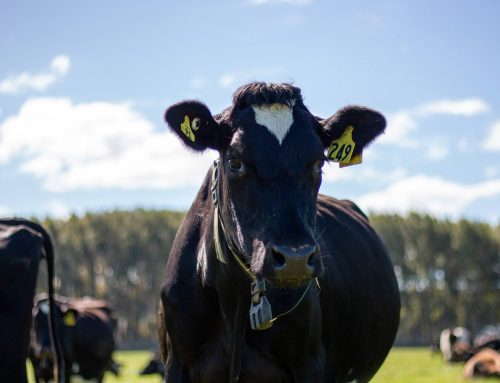In Taranaki, we see this issue arise with relief milkers on dairy farms, but this problem extends to include all other casual farm workers. These are the relief staff employed to assist with seasonal tasks such as docking or tailing, mustering, dipping, haymaking, etc. Many of the workers refuse to accept the work unless they are paid cash, and this leaves farmers in a difficult position. They need to hire someone to do the work but are obviously reluctant to pay cash under the table and be part of the ‘black’ economy. At the same time, if they are going to incur a wage expense as part of the business operations, the farmer will want to claim a tax deduction for the expense.
While under the tax legislation they are entitled to a tax deduction, they will have a serious problem with their failure to deduct PAYE and remit it to Inland Revenue. The relevant legislation can be found in Section RD2 of the Income Tax Act 2007. Essentially – if you pay wages, you must deduct PAYE and pay it on to Inland Revenue.
The other difficulty that farmers face with this whole scenario is the administrative compliance with wages and PAYE. The farmer is required to register as an employer and then complete payday filing PAYE returns. These returns are required to be filed within 2 days of payment if filed electronically or 10 days if filed using hard copies. The farmer is then required to make the PAYE tax payment on the 20th of the following month. This administrative hassle can be made easier using some the payday filing payroll software, such as PaySauce. For a small monthly fee, the software can file the PAYE and payday reports, and automatically deduct and pay the employee their net wages and the PAYE to the IRD. Historically, employers had to file PAYE returns each month, but with the recent payroll changes, employers are only required to file PAYE returns on paying wages. If no wages are paid, then no PAYE returns need to be filed. Paying wages automatically triggers ACC liabilities and the requirement to pay ACC premiums. If the farmer does not normally employ staff, the administrative cost and hassle of dealing with one-off or irregular wages payment is just too much. Some farmers instead look to employ independent self-employed contractors.
The contractors perform the required farming activities and present an invoice for payment when the work is done. In theory, this provides a clean and tidy way of reducing the legal and administrative requirements on the farm owner and transfers them instead to the contractor. However, under withholding payment rules there is an obligation on the person paying for the relevant services to deduct withholding tax at the correct rate and pay this to Inland Revenue each month. Many contractors apply for and obtain tax exemption certificates. These are then presented by the contractor to the farmer as proof that withholding tax does not need to be deducted. Farmers should assume that withholding tax is required to be deducted unless proven otherwise.
New Zealand tax residents can apply for a certificate of exemption if they:
• are in business
• have a good record of filing tax returns and paying tax
• get schedular payments from a payer other than a labour hire business under a labour hire Arrangement
Schedule 4, Part C of the Income Tax Act 2007 contains the lists of types of primary production work that can be subject to withholding payments.
“A payment for work or services referred to in the following paragraphs has a standard rate of tax of 0.15 for each dollar of the payment:
a) farming contract work
b) cultivation contract work
c) shearing
d) droving
e) [Repealed]
f) forestry or bush work (including bush felling, road and tramway work, removal of timber, undergrowth cutting, burning, or clearing)
g) planting or cutting flax
h) work described in section DO 1 or DO 2 that is related to land that is used or intended to be used for farming or agriculture.” The section then details what farm work would be considered as “farming contract work” and “cultivation contract work”. Essentially, these are labour only farm tasks.
The amendments were originally made in response to concerns about tax evasion in the horticultural and viticultural industries. However, they have caught many other types of farm work and brought these into the withholding tax net. Unfortunately for our farming clients, the withholding tax form is the same as the PAYE forms. As a result, there is little benefit gained on having an independent contractor subject to withholding tax compared to a PAYE employee.













